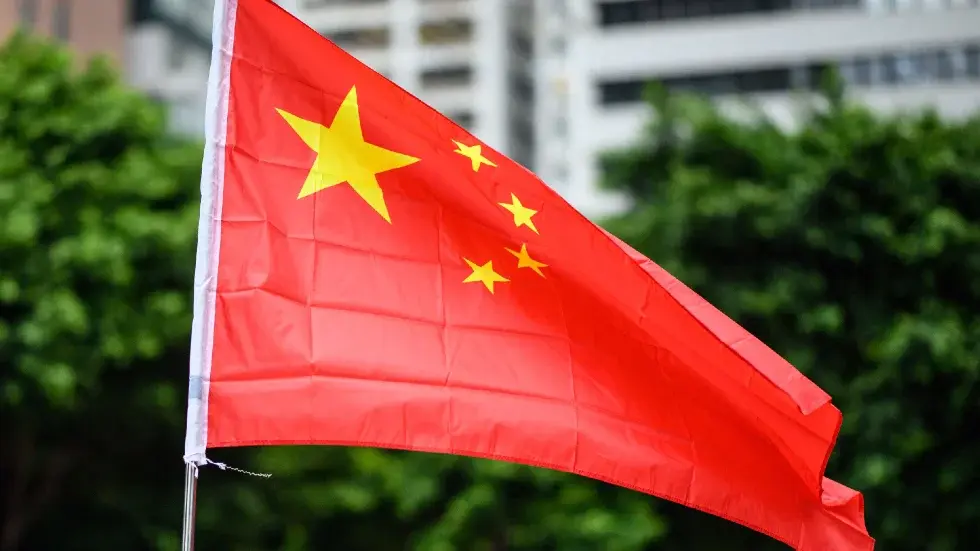I am curious as to how Chinese companies are run and how the workers have a say in them?
When you ask such a broad question, what do you expect the answer will be? What kind of company? How big is the company? Do you know how many companies are there in China? What is an example of a democratic company that can be used as reference?
Private companies are only as “democratic” as the shareholders are democratic.
I am talking about Chinese companies in geenral. How do the workers in Chinese companies have say in for example determining board members?
Regarding board members, you can look at my comments in a post about the latest revision of the Company Law, but it’s mostly about changes and not a detailed explanation of the Employee’s Congress and other democratic mechanisms: https://lemmygrad.ml/comment/4153037
There are roughly these categorizations[1][2][3] for enterprises in China, and I’m already confused after researching the differences:
- domestic-funded enterprise (内资企业)
- state-owned enterprise (SOE, 全民所有制企业/国有企业)
- collective enterprise (集体所有制企业)
- associated enterprise (联营企业)
- cooperative stock enterprise (股份合作企业)
- limited liability company (LLC, 有限责任公司)
- corporation or joint stock limited company (股份有限公司)
- private enterprise (私营企业)
- enterprises invested by Hong Kong, Macao, Taiwan (港、澳、台商投资企业)
- foreign-invested enterprise[4] (外商投资企业)
The type of enterprise is very important as it directly affects who is able to make decisions. As you insist on asking about “Chinese companies in general”, here are some excerpts from an article on a website run by the All-China Federation of Trade Unions[5]: (translated using DeepL with minor corrections)
From the section on “Difficulties and Problems Facing the Current Democratic Management of Enterprises and Institutions” (当前企事业单位民主管理工作面临的困难和问题):
- inadequate awareness (思想认识不够到位):
一些企业经营者把企事业单位民主管理制度与现代企业制度对立起来,把职工代表大会制度与董事会、监事会对立起来,认为公司有了股东会、董事会和监事会就没有必要再召开职工代表大会,要发挥职工代表大会的作用就会制约企业的发展,妨碍企业的经营管理权,影响公司治理结构的有效运行。
Some enterprise operators put the democratic management system of enterprises and institutions in opposition to the modern enterprise system, and the system of employee’s congresses in opposition to the board of directors and supervisory boards, believing that there is no need to convene employee’s congresses when a company has a shareholders’ meeting, a board of directors and a supervisory board, and that to play the role of employee’s congresses will constrain the development of the enterprise, impede the right to manage the enterprise’s business and affect the effective operation of the corporate governance structure.
- insufficient standardization of processes (程序运作不够规范):
一是有的企业多年不开职工代表大会,即使开也不严格遵从法定程序,走走过场,作作样子。有的以其他会议代替职代会,搞“二会合一”“三会合一”甚至“四会合一” 。
- Some enterprises do not hold employee’s congresses (EC) for many years, and even when they do, they do not strictly follow the legal procedures, going through the motions and making a show of it. In some cases, other meetings are held in place of the EC, and “two meetings in one”, “three meetings in one” or even “four meetings in one” are organized.
二是一些企业职工代表大会中半数以上职工代表是各级管理人员,在职工代表的产生上存在“指定代表”和选举程序“走过场”现象,既没有实行差额选举,也没有广泛征求职工意见,产生的职工代表缺乏群众基础,难以充分代表广大职工的意愿。
- In some enterprises, more than half of the employee representatives in the employee’s congress are managers at all levels, and there is the phenomenon of “appointed representatives” and “going through the motions” in the election of employee representatives, with neither the implementation of short-listed elections nor extensive consultation with the employees, resulting in a lack of a mass base for employee representatives to adequately represent the will of the general employees.
三是有些企业在职工代表大会召开之前没有经过征集职工代表议案、审查确定会议议题等规定程序,而是直接到职工代表大会上进行审议,举手表决通过。
- Some enterprises do not go through the prescribed procedures of soliciting motions from employee representatives and reviewing and determining the topics for the meeting before the employee’s congress is convened, but instead go directly to the employee’s congress for deliberation and adoption by a show of hands.
四是有些企业怕得罪领导,直接取消民主评议领导干部、代表大会发言等重要环节,认为年底人事考核可以代替职代会民主评议。
- Some enterprises are afraid of offending the leadership, and directly cancel the democratic evaluation of leading personnel, congress speech and other important links, and think that the end-of-year personnel assessment can replace the democratic review by the employee’s congress.
- inadequate ability (能力素质不够高):
一是一些企业挑选“老好人代表”“听领导话代表”,职工戏称他们是“握手、举手、拍手”三手代表,是“稻草人”“橡皮人”, 这些人一切看领导眼色行事,往往不能真正代表职工说话,为职工办事。个别企业选举爱与领导作对、像“刺头”那样的代表,这样的代表爱出风头,容易弄僵干群关系,更难为职工办成好事。
- Some enterprises select “nice guy” or “yes-man” as (employee) representatives, […] these people act under the preferences of leadership, and often do not really speak on behalf of the employees or do things for them. Some enterprises in particular elect representatives who love to work against the leadership and act like “thorns”, and such representatives love to be in the limelight, this is likely to stiffen relations between the cadres and the masses, making it more difficult to do good things for the employees.
三是企业工会干部作为企业成员之一,在经济上受制于企业,往往会对推行民主管理制度产生畏难情绪,在为职工维权上存在“不敢维、不会维、不能维”的“三不”现象。
- As members of the enterprise trade union, cadres are economically constrained by the enterprise, they are often afraid of implementing the democratic management system, and there exists the phenomenon of “three not’s” of “not daring to defend, not knowing how to defend, not being able to defend” in defending the rights of the employees.
四是在国有企业改革改制深化过程中,随意撤并工会组织现象突出,且呈蔓延趋势,一些中央企业工会主席被排斥在公司领导层之外,缺少话语权,直接影响到民主管理工作的推进力度。
- In the process of deepening the reform and restructuring of state-owned enterprises, the phenomenon of arbitrarily withdrawing and merging trade union organizations is prominent and is spreading, and the chairman of the trade union of some central enterprises is excluded from the leadership of the company and lacks a voice, which has a direct impact on the strength of the promotion of democratic management.
References
- [1] 中华人民共和国企业法人登记管理条例 https://www.gov.cn/gongbao/content/2019/content_5468910.htm
- [2] 关于划分企业登记注册类型的规定 https://www.stats.gov.cn/sj/tjbz/gjtjbz/202302/t20230213_1902746.html
- [3] 分类规定 https://www.stats.gov.cn/sj/pcsj/jjpc/3jp/zk/html/zb02zh.htm
- [4] 【企业常见热点问题系列】“外商投资企业定义”一问一答 https://invest.beijing.gov.cn/sy/zt/qyrx/202307/t20230710_3159286.html
- [5] 当前企事业单位民主管理工作成效、问题和对策建议 https://www.workercn.cn/c/2023-02-14/7733743.shtml
Thanks for this information, on another subject: have u ever researched hereditary laws in China?
Do you mean inheritance laws?
No, but they’re written in “Book Six : Succession” of the Civil Code (Chinese, English translation).
deleted by creator
- domestic-funded enterprise (内资企业)
deleted by creator
Some of the above posted links and translations in comments may be helpful.
deleted by creator





